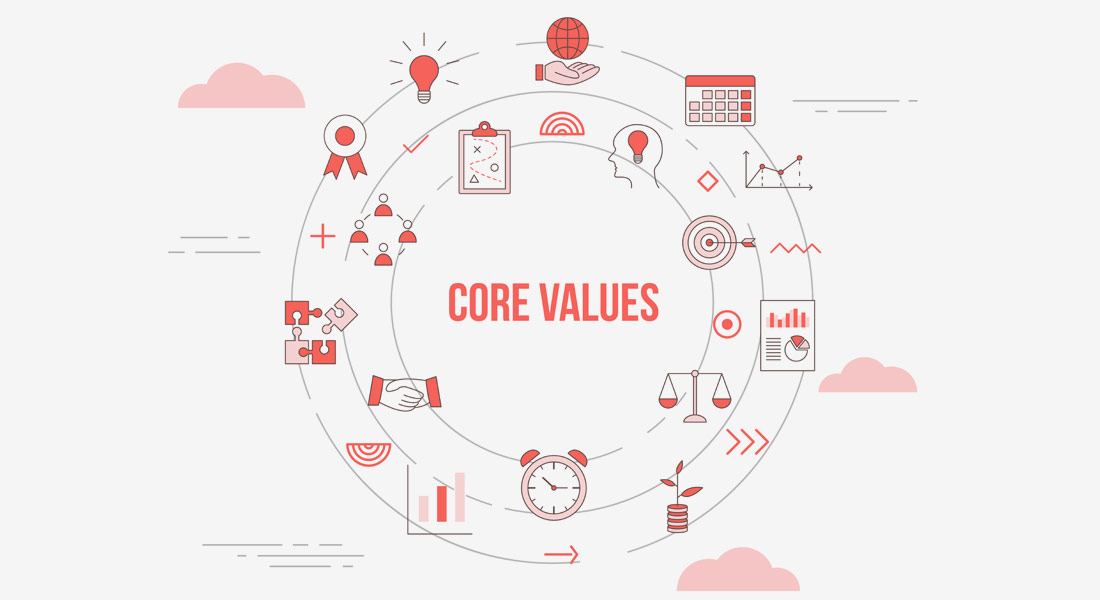Understand the relevance of EDI principles
Julia Trattnig | 29 September 2021 updated by Karin Grasenick | 08 March 2023
Granting equal opportunities matters not only for fairness and social justice, but also for improving economic outcomes and performance in Research and Innovation (R&I), which is especially crucial for scientific endeavours (EU, 2019).
Equal opportunities allow all members (of a project, but also of society in general) to thrive and contribute; if everyone is committed to participate, using diverse skills, scientific disciplines and backgrounds, a diversity of perspectives will come together. In this understanding, all perspectives and fields of expertise are equally valuable and important to enhance innovation.
Additionally, equal opportunities aim to guarantee equal participation (i.e. inclusion) for everyone, and thus enhance diversity, which broadens possibilities:
increasing human capital capacity in general (because the talent pool increases), as well as individual human capacity (because diverse personal contexts can be considered). For example, gaps due to military services, illnesses or care duties for children or elderly are normalised in recruiting procedures to enable equal opportunities for all suitable candidates (Brink/Benschop, 2011).
Equality (aka equal opportunities) lies thus in the very centre of the European Union’s values as stated in Article 20 of the Charter of Fundamental Rights of the European Union (EU Agency for Fundamental Rights, 2021/2009):
“Everyone is equal before the law.”
Article 21 states:
“any discrimination based on any ground such as sex, race, colour, ethnic or social origin, genetic features, language, religion or belief, political or any other opinion, membership of a national minority, property, birth, disability, age or sexual orientation [is] prohibited”.
Article 22 focuses on the respect of diversity.
These three articles of the Charter of Fundamental Rights show that Equality, Diversity and Inclusion (EDI) (see “Check out some basic definitions”) are core principles of the EU.
This view permeates all policy documents and strategy papers, i.e. the framework of the European Union, and is thus firmly anchored at governance level.
- Equality means that everyone should have the same chances and rights, independent from other factors such as socio-economic background, gender, ethnicity, disabilities, etc.
- Equity refers to efforts to address the various causes of inequality. When deciding on resources or measures to counteract the discriminatory effects of structural barriers, biases, or gatekeeper interests, individual needs should be identified and considered.
- Diversity means that everyone is defined by a variety of dimensions (e.g. race, ethnicity, gender, disability, sexual orientation, gender identity, national origin, scientific disciplines, socio-economic status, thinking and communication styles, etc.).
- Inclusion means that everyone should be included, i.e. to create an environment in which equal opportunities are ensured for diverse people to participate.
Article 8 of the Treaty on the Functioning of the European Union confirms the importance of equality as follows:
“In all its activities, the Union shall aim to eliminate inequalities, and to promote equality, between men and women”
(Official Journal of the EU, 2012).
In the strategy paper “A Union of Equality: Gender Equality Strategy 2020-2025”, the European Commission (EC) clarifies that the perception of men and women addresses these genders in all their diversity,
“to express that, where women or men are mentioned, these are a heterogeneous categories including in relation to their sex, gender identity, gender expression or sex characteristics. It affirms the commitment to leave no one behind and achieve a gender equal Europe for everyone, regardless of their sex, racial or ethnic origin, religion or belief, disability, age or sexual orientation”
(EC, 2020a).
As principles of equality and diversity are clearly noted in the European framework, governance units must act consequently. It has consequences for the involved partners and actors if these principles are neglected. For example, if a researcher were to be dismissed due to their sexual orientation, it would have legal consequences for the institution.
It is essential that EDI principles are integrated in governance structures and frameworks, such as the European Charter for Researchers or the European Code of Conduct for Research Integrity (see “Consider the European framework for equality”) and that these charters and policy documents are considered to ensure equality to everyone.
These structures, frameworks and laws ensure protection against discrimination and serve as guidance for governance structures on how to implement equality according to the values of the European Union.
It is a joint undertaking by all stakeholders – as also stated in the Gender Equality Strategy Factsheet (EC, 2020b). Therefore, all partners should be committed to ensure EDI principles, as these are given in Governance frameworks, and work together to achieve a future with equal opportunities for all.
References
van den Brink, Marieke/Benschop, Yvonne (2011): Gender practices in the construction of academic excellence: Sheep with five legs. In: Organization, Vol. 19, No. 4, p. 507-524. DOI: 10.1177/1350508411414293.
European Commission (2020a): Gender Equality Strategy 2020-2025. 5.3.2020. URL: https://ec.europa.eu/info/policies/justice-and-fundamental-rights/gender-equality/gender-equality-strategy_en
European Commission (2020b): Striving for a Union of Equality. The Gender Equality Strategy 2020-2025. DOI: 10.2775/671326
European Union (2019): Gender equality and Diversity in R&I. Factsheet. 10.12.2019. URL: https://ec.europa.eu/info/sites/default/files/research_and_innovation/knowledge_publications_tools_and_data/documents/ec_rtd_factsheet-gender-equality_2019.pdf [11.08.2021]
European Union Agency for Fundamental Rights (2021/2009): Charter of Fundamental Rights of the European Union. URL: https://fra.europa.eu/en/eu-charter [11.08.2021]
Official Journal of the European Union (2012): Consolidated Version of the Treaty on the Functioning of the European Union. 26.10.2012. URL: https://eur-lex.europa.eu/legal-content/EN/TXT/?uri=celex%3A12012E%2FTXT [11.08.2021]

